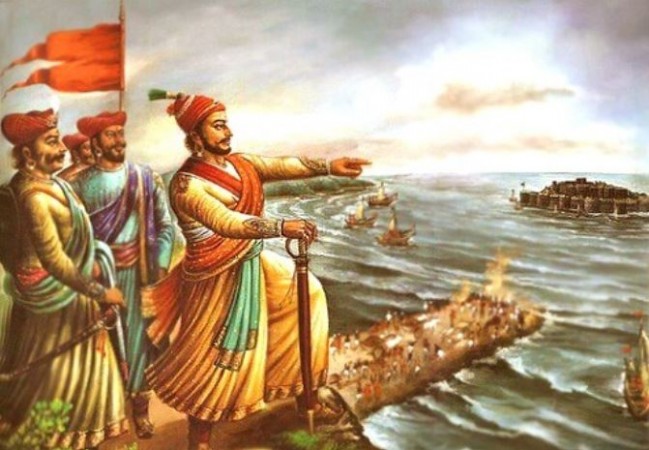
Chatrapati Shivaji, the founder of the Maratha Empire, is often referred to as the "Father of the Indian Navy" due to his strategic vision and efforts in building a formidable naval force. His contributions to naval warfare and maritime activities played a crucial role in shaping the maritime history of India. Here's a detailed article highlighting historical facts about why Chatrapati Shivaji earned the title of the "Father of the Indian Navy."
Maritime Vision:
Chatrapati Shivaji had a visionary approach towards maritime affairs. Recognizing the strategic importance of naval power, he initiated the development of a robust naval force to protect the Maratha territories and trade routes. His far-sightedness in understanding the significance of a strong navy set the foundation for India's maritime strength.
Creation of a Naval Force:
In the late 17th century, Shivaji established a well-organized navy to safeguard the Maratha coastline from foreign invasions, particularly from the European powers like the Portuguese, British, and Dutch. He understood that control over the sea was vital for the protection of his kingdom and the promotion of trade.
Forts and Coastal Defenses:
Shivaji constructed a series of forts along the Western Ghats and the Konkan coastline, creating a network of coastal defenses. These strategically positioned forts served as lookout points, warning systems, and naval bases, enabling effective control over maritime activities.
Shipbuilding and Dockyards:
Realizing the need for a strong naval fleet, Shivaji invested in shipbuilding and established dockyards. He encouraged the construction of warships, including the galivats, man-of-war ships, and frigates. The Maratha navy, under Shivaji's leadership, became a formidable force that could rival European naval powers of that era.
Naval Warfare Tactics:
Shivaji was not only a pioneer in naval infrastructure but also a master strategist in naval warfare. He developed innovative tactics, including the use of fire ships, sea forts, and guerrilla warfare at sea. These tactics were later studied and adopted by naval commanders worldwide.
Promoting Trade and Commerce:
Shivaji recognized the economic significance of maritime trade. By securing trade routes and ports, he encouraged commerce and trade, contributing to the economic prosperity of the Maratha Empire. This approach fostered a strong naval economy, further solidifying his title as the "Father of the Indian Navy."
Legacy and Inspiration:
Shivaji's naval legacy endured beyond his reign. His emphasis on maritime strength influenced subsequent rulers, including the Marathas who continued to maintain a powerful navy. His naval strategies and tactics found a place in maritime doctrines, and the Indian Navy today draws inspiration from his vision and contributions.
Recognition by the Indian Navy:
In recognition of his monumental contributions to maritime defense, the Indian Navy officially designated Chatrapati Shivaji as the "Father of the Indian Navy." This acknowledgment underscores his enduring impact on India's maritime history and his role in laying the foundation for a strong naval tradition.
In conclusion, Chatrapati Shivaji's designation as the "Father of the Indian Navy" is rooted in his strategic acumen, naval innovations, and the lasting legacy he left on India's maritime prowess. His vision and contributions continue to inspire and shape the maritime narrative of the nation.
Navy Day: Celebrating Valor, Remembering Trident's Triumph
Lessons from Sanjeev Nanda - Leadership and Management in the Hospitality Sector
Centre Steps In: Proposal to Revert Nagarjuna Sagar Waters Agreement Amidst Conflict